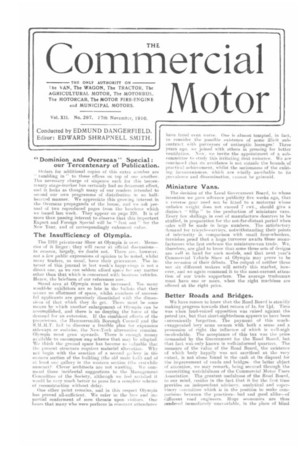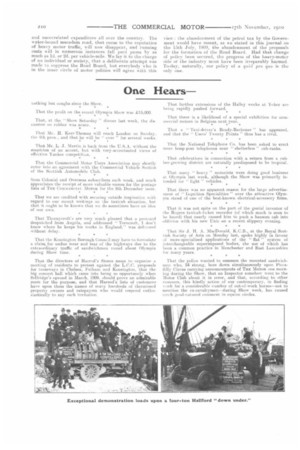Better Roads and Bridges.
Page 1

Page 2

If you've noticed an error in this article please click here to report it so we can fix it.
We have reason to know that the Road Board is steadily making progress towards that return of is. for lid. Time was when loud-voiced opposition was raised against the petrol tax, but that short-sightedness appears to have been onveniently forgotten. The payment of this muchexaggerated levy arms owners with both a sense and a possession of right the influenee of which is well-nigh incalculable. The acceptance of this tax was the price demanded by the Government for the Road Board, lent that fact was only known in well-informed quarters. The measure of the value of the Road Board, the existence of which body happily was not sacrificed at the very outset, is not alone found in the cash at its disposal for the improvement of roads and bridgesthe latter object of attention, we may remark, being secured through the unremitting watchfulness of the Commercial Motor Tsers Association. The greatest usefulness of the Road Board, to our mind, resides in the fact that, it for the. first time provides :tri independent advisory, analytical and supervisory committee which is in -the position to make comparisons between the prectices— had and good alike--of different road Vt!girieem Hnue economies are thus rendered immediately' onavoidable, in time place of blind and uncorrelated expenditure all over the country. The water-bound macadam road, that curse to the reputation of heavy motor traffic, will now disappear, and running costs will in numerous instances fall pun i passe by as much as id. or 2d. per vehicle-mile. We lay it to the charge of no individual or society, that. a deliberate attempt was made to suppress the Road Board, but everybody who is in the inner circle of motor politics will agree with this view : the abandonment of the petrol -tax by the Government would have meant, as we stated in this journal on the 15th July, 1000, the abandonment of the proposals for the formation of the Road Board. Had that change of policy been secured, the progress of the heavy-motor side of the industry must have been irreparably harmed. To-day, naturally, our policy of a Told pro po is the only one.






















